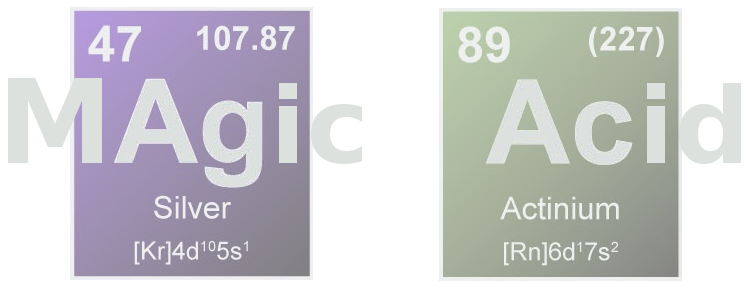I had the following e-mail exchange with one of my Chem 114 students, Kinza. Usually, the questions I get are specific to what we're studying in class and they tend to be easier to answer during office hours. These questions, on the other hand, were Kinza trying to understand the concept of entropy. We had covered it briefly earlier in the semester in the chaprter on thermodynamics. It's definitely a difficult concept, one I don't understand fully myself. It's more in the physics realm than chemistry but I still felt it was worth sharing. Published with student's permission.
Hi Mark,
If every reaction that occurs increases the entropy of the universe, doesn't that mean that all the reactions going on in the universe are causing the entropy of the universe to keep going up? What's going to happen to the universe as predicted by thermochemistry?
-Kinza
Hi, Kinza.
What a fantastic question! You're absolutely right. There's even an ominous name for this concept: the heat death of the universe. Basically the universe will be one uniform temperature and no energy will be left to do useful work.
"This is the way the world ends
Not with a bang but a whimper."
-TS Eliot
It's not entirely clear what effect gravity has on entropy so that does make it a little more complicated.
The book Fabric of the Cosmos by Brian Greene is worth checking out if you're still curious. It's written as a non-fiction pleasure-reading book. It describes some of the weirder parts of physics but without all the math that's normally involved (for people who may not yet have taken calculus 4). Part II deals a lot with entropy.
Cheers, Mark
Hello,
Thank you!! I've been thinking about it a lot; yes I'm still curious! So since the world is reaching an ever-rising level of entropy, doesn't that mean everything will eventually become gas since gas has the highest entropy?
So we don't know whether or not the pull of the universe expanding will eventually become stronger than internal forces like gravity? Also, is the solar system going to drift apart or do we not know what effect entropy has on the solar system yet either?
Sorry, I have so many questions and it's a lot more helpful to ask someone who understands this stuff instead of reading articles written in words I can't pronounce. Studying the stuff we learned in chemistry all semester, looking at it now, I can see that it's brushing the surface of something really huge.
Thank you for telling me about the book! I found the PDF of it online I'm going to see what it's all about when finals are over.
-Kinza
Hi, Kinza.
More great questions. I've put my answers down below. These conversations might make a good blog post. Do you mind if I post them? If not, would you prefer I include your name or leave it off?
Cheers, Mark
That's one possibility. Gas has the highest entropy compared to solids and liquids but it gets tough to compare when you're talking about exotic things, like blackholes. Gravity has some relationship with entropy that I don't completely understand.
The ultimate fate of the universe is still unknown. When Einstein came up with relativity theory, he assumed a static, unchanging universe that would not have a beginning or end. In the 1920s and 30s, Edwin Hubble and Georges Lemaître discovered that the universe is actually expanding. The effects of gravity work to slow down this expansion. If the initial expansion were fast enough, gravity would not be able to keep up and the universe would keep expanding forever (heat death). The other option is that gravity would win and the universe would contract into a singularity (the "big crunch" model). Started in 1998, evidence was found that suggested the acceleration of the universe was actually expanding. This requirs some sort of energy that is always repulsive (the opposite of gravity) and could push matter faster and faster. We currently don't what that stuff is; we call it "dark energy", which is really just a placeholder until we understand it better.
No problem at all. Questions from someone who's genuinely curious are always fun to answer; a welcome change from the "how do I do this homework" type questions I usually get. =P
Enjoy. It's one of my favorites. I first read it while I was on vacation with a friend. I would periodically look up and say things like "Wow! Did you know that from a physics perspective it's statistically more likely that all your memories are made up than that they actually happened" and they would all look at me like I was insane.
